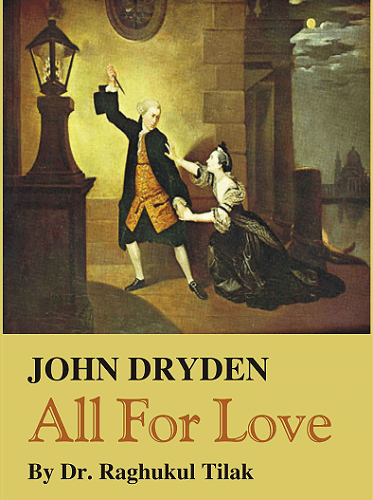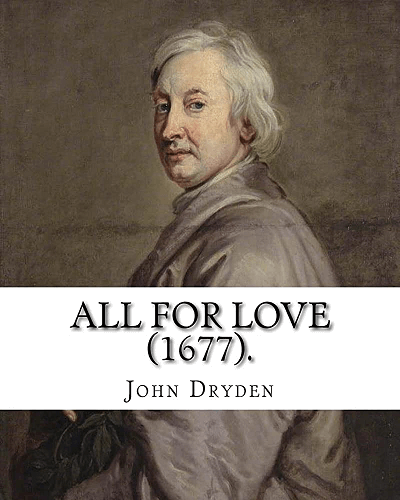All For Love SummaryIntroduction'A concise explanation highlighting the key details or concepts of something is known as a summary.' An executive summary is a succinct statement that informs the reader of the key points of a lengthy piece of writing. The summary is essentially a condensed version of a lengthy material. Depending on the genre of writing, summaries can range in length, although they are often no more than a page. The conclusion of a work of literature, for example, the back cover of a book, often contains summaries. They serve as a summary of the story's events and a recap of its main ideas. The topics of summary writing, summary kinds, and summary examples will all be covered in this class. 
Depending on the length of the main writing or genre of writing, a summary should be an extract of writing written in either sentence or paragraph form. Sticking to the essential points while discussing novels is crucial, without necessarily giving away the entire storyline. A summary's objective is to capture the reader's attention or to review the key moments in a work. The reader will get the information they need without extraneous information if the summary is brief. The author can use a few techniques and mechanics to create a strong summary that provides an insightful overview of the work. The author can contextualize the source at the outset of the summary by employing words to give it meaning inside the work. The writer should state the key idea in the summary and then back it up with details from the source. Briefly introduce the source and explain why it is utilized in the piece. The length of a summary might change depending on the summary's writing style. Traditional summaries are typically one page long, although they can be longer. A summary should, in theory, not be more than two pages since, if it is, the reader can become discouraged and stop reading. However, depending on the sort of writing being utilized, a summary that is even shorter could be useful. As the name implies, a brief summary is shorter than a standard summary and may take the form of an abstract or epitome. These should not be more than one page and can range in length from a few words to a few paragraphs. Most frequently, they are between 200 and 400 words. About The AuthorDuring the Restoration era, John Dryden (1631-1700) was a significant English poet, dramatist, and critic. He is regarded as one of the most important authors of his period and greatly impacted the development of English literature. Aldwincle, Northamptonshire, England, is the birthplace of Dryden. He attended the University of Cambridge for his studies before pursuing a career in writing and literature. His publications fall under a variety of genres, including critical essays, theatre, poetry, and translations. 
As a poet, Dryden was renowned for his deft language use, diversity in poetry genres, and capacity to write in a variety of subjects and literary forms. His poems covered a wide range of subjects, including politics, religion, love, and morality. His poetry is well known for pieces like "Annus Mirabilis," "Absalom and Achitophel," and "The Hind and the Panther." Additionally, Dryden was a prolific playwright. Among the many plays he produced were comedies, tragedies, and heroic dramas. His theatrical works frequently include humor, satire, and moral commentary and are a reflection of the social and political milieu of the Restoration era. One of his well-known hero dramas, "All for Love" (1677), was written in blank verse and was based on the Antony and Cleopatra tale. Dryden was actively interested in literary criticism, essay writing, and his artistic pursuits. His critical writings, including "An Essay of Dramatic Poesy" and "Essay on Satire," have significantly impacted the growth of literary theory and criticism throughout his lifetime. Beyond his texts, Dryden has had a significant influence on English literature. In 1668, he was chosen to serve as England's first Poet Laureate, a position he retained until his passing. His contributions as a writer and critic shaped the Restoration era's literary scene and had an impact on later poets and playwrights. Overall, John Dryden was a multifaceted and significant character in English literature who was recognized for his poetry, theatre, critical essays, and his capacity to change with the times. For their linguistic brilliance, social critique, and enduring literary relevance, his writings are still studied and valued today. All For Love SummaryThe narrative poetry "All for Love" by Lord George Bryon describes how our youth is the finest and most wonderful time of our lives, but it is also transient because as we age, things change. The narrator of the poem only ever reveled in the praise heaped upon him for his great exploits because he yearned to win the affection and attention of a particular female, not because he liked to hear people praise him. Finally, he perceives himself as magnificent in light of his acquisition of her affection. Dryden wrote the hero drama All for Love. It is a Shakespearean dramatization of Antony and Cleopatra. The greatest Elizabethan dramatist's divine romantic vision was intended to be interpreted by Dryden in a straightforward and controlled manner. Plays about heroes did not emerge from classical influence. They maintain the independence of the National Theatre in their composition. However, they owed France more in terms of content than in terms of form. They mimicked the spectacular exploits that were typical of French romances from the eleventh century. Here are superhuman deeds, absurdly refined sentiments, and breathtaking?and even abhorrent?passion. The heroes are role models because of their unmatched bravery and unmatched love. The plays often contain several outstanding speeches. The majority of the topics center on the fight between love and honor, which may be attributed to the influence of French heroic romances and tragedies. Dryden claims in the introduction of All for Love that he has emulated Shakespearean style. However, All for Love is thought of as a hero play. The conflict between love and honor, namely between Antony's sense of obligation to his wife Octavia and his passion for Cleopatra, is the drama's central top The visual descriptions of Antony allude to his superhuman abilities. Antony makes a great show of suffering by flinging himself to the ground. The linguistic exaggeration is under check, and the play's structure, including that of the heroics, is restrained. By using blank verse, Dryden attempts to emulate Shakespeare's refined manner. In the play, Dryden aimed to conform Antony and Cleopatra by Shakespeare to neo-classical guidelines. Its construction is flawless and comprehensive. The drama centers on the concepts of responsibility and love. Antony struggles between his loyalty to his wife, Octavia and his desire for Cleopatra. As significant a figure as Cleopatra is Octavia. It doesn't capture the intense desire that Shakespeare depicted in Antony and Cleopatra. Between Octavia and Cleopatra, the audience shows varying degrees of compassion. Despite its excellent technique and structure, the drama falls short of evoking the same sense of wonder and compassion we experience while reading Shakespeare's Antony and Cleopatra. In truth, the drama lacks the ardor and emotional intensity that Shakespeare's play does. Theme Of The PoemThe poem "All for Love" centers on the concept that prior accomplishments lose worth over time, highlighting the significance of unadulterated love as the ultimate and most meaningful accomplishment. The poem makes the point that it is ultimately pointless to gauge one's value or pleasure merely by their past successes. It indicates that things like money, social standing, or professional accomplishment are ephemeral and can become meaningless with time. The poem challenges the reader to acknowledge that feeling and spreading love is the source of great accomplishment and long-lasting fulfillment. The poem implies that love is ageless and has inherent value that outweighs the fleeting nature of worldly successes by emphasizing love as the ultimate achievement. It means that love offers a sense of contentment, satisfaction, and meaning that cannot be obtained by things or outside approval alone. Instead of depending exclusively on one's previous accomplishments for approval or pleasure, the poem advises people to prioritize and look for true love. It suggests that love delivers a more profound relationship that goes beyond worldly goals and offers a stable source of fulfillment. The poem's premise may also imply that love extends beyond romantic partnerships to encompass love among family members, friends, and mankind as a whole. It emphasizes how important it is to appreciate and nurture such relationships since they are what ultimately lead to success and fulfillment. The overall message of "All for Love" emphasizes the fleeting nature of previous successes and exhorts the reader to prioritize finding true love as life's ultimate and most meaningful achievement. It challenges people to look beyond the confines of temporal success in order to uncover deeper relationships, pure love, and enduring fulfillment. Tone Of The PoemThe narrator asks bluntly, "What are garlands and crowns to the brow that is wrinkled?" to illustrate the meaning of the question: What do past accomplishments mean to an older person? Line 6, "'Tis but as a dead flower with May-dew besprinkled," further emphasizes the point that past achievements are meaningless because they occurred so long ago. Because he utilizes terms that support the tone of the poetry, the tone is constant. This poem's author wants to show the reader that one shouldn't constantly rely on one's prior successes. When you were younger, those successes and achievements had value, but now that you are older, they are worthless. Literary ApparatusBecause the words in each stanza have the same ends at the conclusion, this poem follows the rhyme scheme AABB AABB AABB AABB. The ending of narrative and glory in stanza 1 is -ory, which accounts for the AABB rhyme structure. Symbol: In line 14, "Her glance was the best of the rays that surround thee," the narrator is told that the woman has provided him light and happiness. He knew it was real love, which was magnificent to him, and it made the tale of his life vivid and significant. Diction: Bryon might convey a blunt and gloomy tone by employing unpretentious, plain-spoken words and phrases like "What care I for the wreaths that can only give glory?"
Next TopicAn Epitaph Summary
|
 For Videos Join Our Youtube Channel: Join Now
For Videos Join Our Youtube Channel: Join Now
Feedback
- Send your Feedback to [email protected]
Help Others, Please Share









